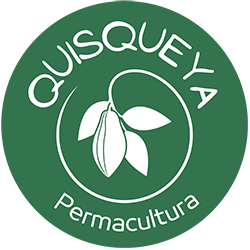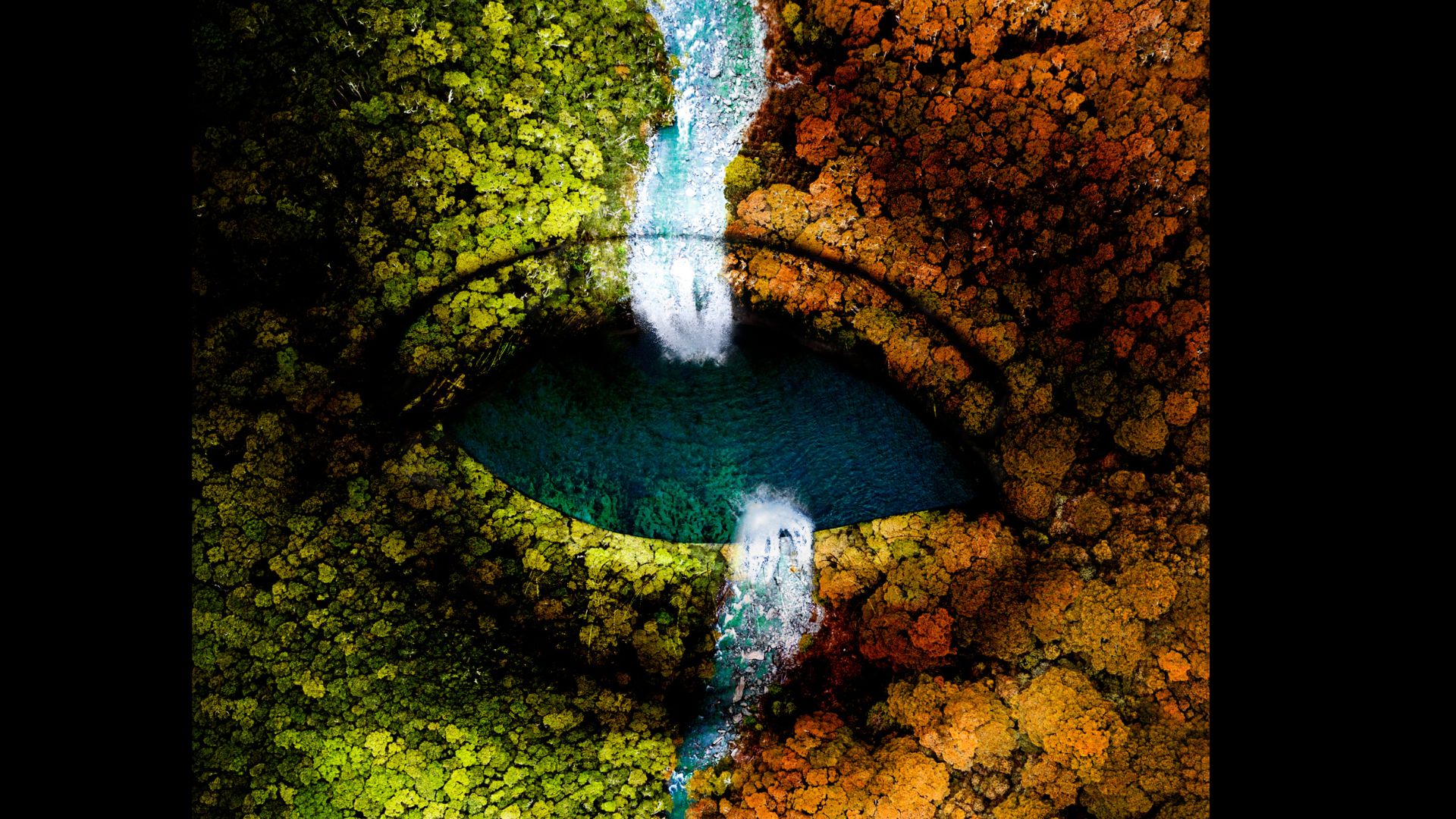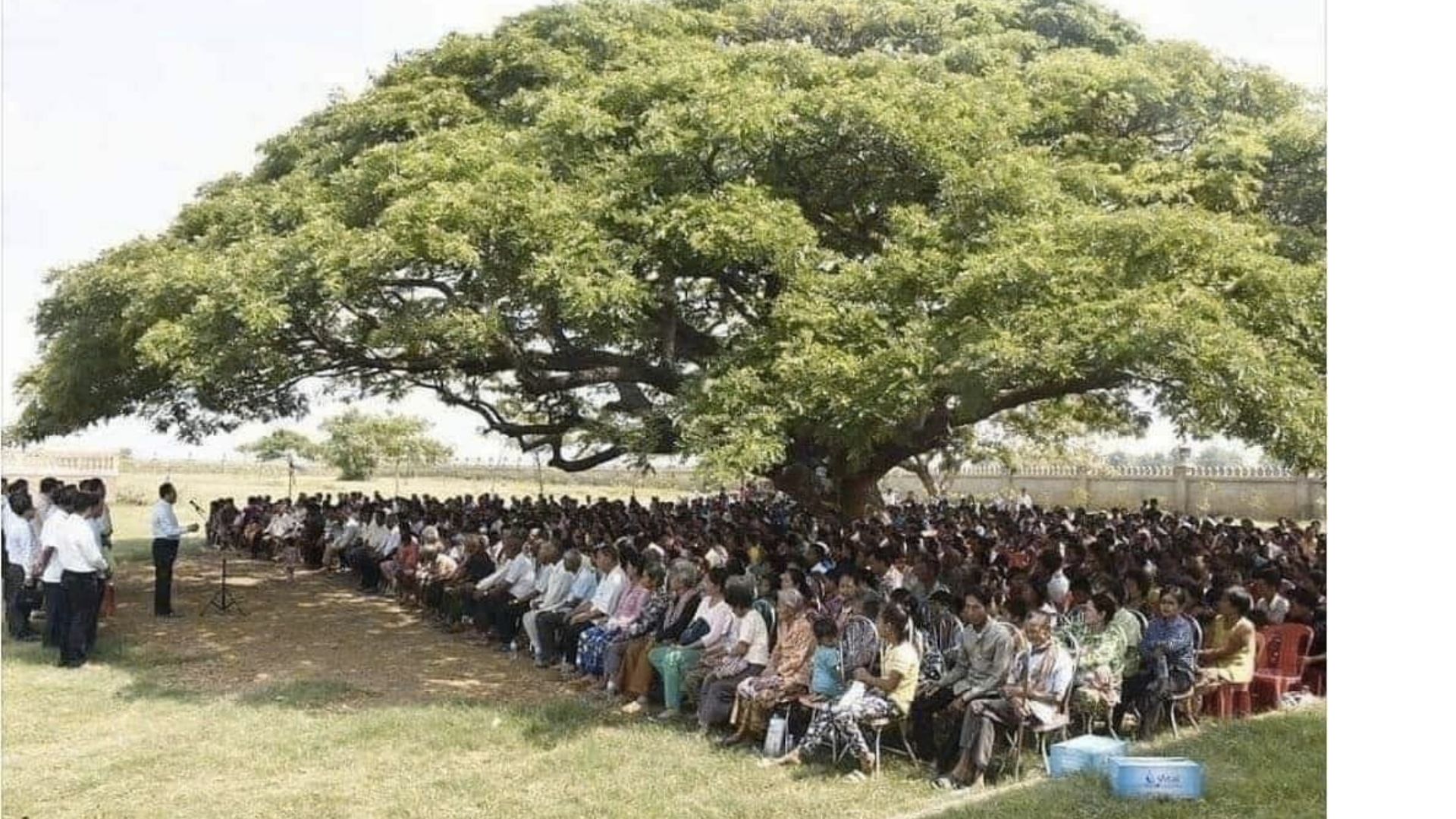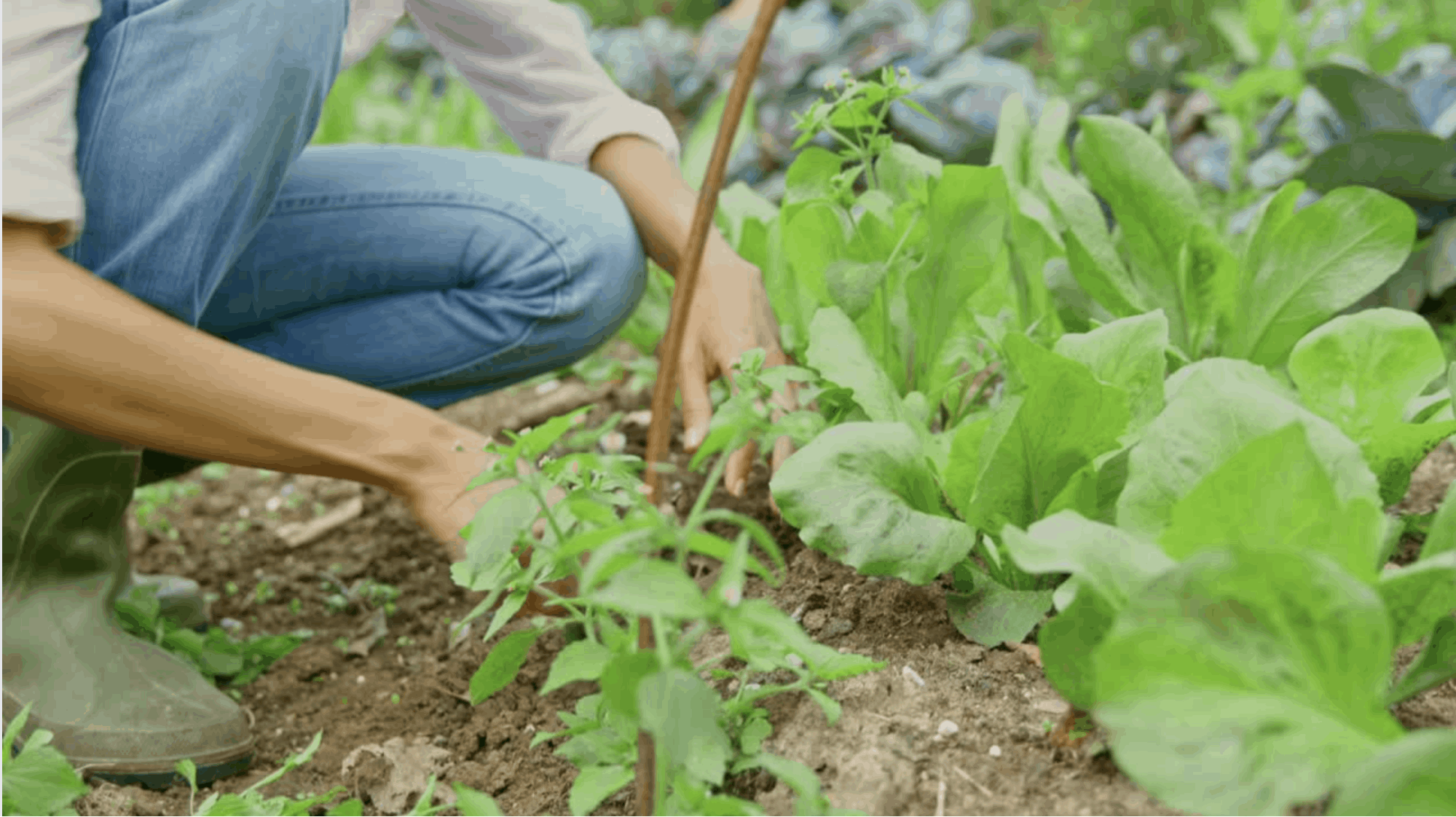Why the Transition Ethics is Decolonization in Practice?
Transition Ethics: Decolonization in Practice?
In my last blog: Permaculture & Economics, I spoke about three (3) ethics that are the pillars of Permaculture: Earth Care, People Care and Justice (Fair Share.)
Permaculture’s main goal is to offer a framework that facilitates the transition for restorative social, ecological and economic justice through peacebuilding, collaboration and empowerment.
A 4th Unofficial Ethic: Transition
What I failed to mention is that there is now an un-official fourth Ethic that came long after the Permaculture movement first ignited: the Transition ethic, and it happens to be my favorite one!
As the action of transition means to change from one state to another; the transition ethic recognizes that, when we embark on a path where we strive to live in a more humble, regenerative way, we face different challenges and cruise through difficult emotions. And to be able to overcome this transition in a more resilient way, we should acquire different knowledge and skills, including lifelong learning skills and intercultural skills such as self-reflection, tolerance, flexibility and adaptability. Today, transition is recognized as a 21st Century Soft Skill.
Why am I passionate about transition?
Throughout the years, the ethic of transition has become the most relevant one, as it has become clear to me that we cannot heal nature, without healing human relationships, including the relationship with our individual selves.
As humans, we are separated by history, class, religion, genders, and other distinctions. Yet, we are one human species, living on, and impacting, whether directly or indirectly, this common biosphere that we share.
The Permaculture lens brings to the forefront the alignment of ancient wisdom, value systems and practices from cultures around the world, with modern knowledge of nature, science and technology. The, Transition Ethic asks us to self-reflect and look at the profound work and understanding that ancestors had about their responsibility with the Earth and its people. Because of their ability to understand and adapt to their environment and support systems, we can enjoy the world as we have today.
Yet, I feel we have moved away from that understanding, that sense of responsibility, proactiveness and agency. Throughout history, as humans, we have adopted practices and behaviors that not only hurt our land, biodiversity and communities, but they also hurt us and the people we love. Hence, why the world today is in crisis!
The Transition Ethic reminds us to do quite the opposite! It calls us to take our power back, and be a positive contributor to this earth. In a “flower power” way of speaking, as my friends often refer to me, it is to be a part of the healers! (that being said, always within limits and you will read why further down.)
Transition as a path towards Decolonization:
One of the biggest challenges I feel we face as “permaculturists” is navigating through the paradigm shift.
All of a sudden you come in touch with these concepts, you realize how deeply involved you are in the Earth’s Crisis. It becomes so evidently real. Including the fact that we must act incredibly fast to reverse and restore the damage done to our natural and human systems.
We often fail to see that everything is a process. Our arrival to this point has been a process. Our way out of it will be a process.
Part of how we got here started over 500 years ago. The dominance of power and the imposition of worldviews through Colonialism are some of the ongoing factors that contribute to how communities around the world access, enjoy and manage their natural, sociocultural and economic resources.

Let’s Get Into Decolonization
Decoloniality entails decentring Western perspectives of knowledge to reflect multiple other forms of being and knowing. Therefore, PLURALITY . “To consider differences in ideas, social practices, histories, identities, and beliefs as part of a myriad of means towards the democratization of knowledge production beyond the yoke of pervasive Eurocentrism.” (Amo-Agyemang, 2021)
As Sarah Quebatlin says in her article: Decolonizing Permaculture, for Permaculture Magazine, as indigenous and colonized nations, we have been subjected to a linear set of principles and dominant worldviews about our own cultures. In fact, she states: “many indigenous peoples and formerly colonized nations communicate more with oral traditions. Those from oral traditions often do not practice referencing a worldview, system, or method with a name or framework.”
This resonated with me so much. Through the transition ethic, I realized that as a dominican, as a Permaculture facilitator and Regenerative Tourism professional, there was so much “unlearning, learning, relearning” preconceptions about myself, amy culture, about my context, about others’ context .This process would be one of decolonization because in order to work towards restorative ecological and social justice, I would need to deepen my knowledge about how communities, families, how even I was affected economically, when it came to the balance in the possession of resources and land, educationally, upon the imposition of knowledge, the culturally upon the erasure of values, attitudes, language, and belief, psychological upon the internalization of oppression. Because decolonization’s ultimate goal is to “achieve cultural, psychological and economic freedom.” A goal not too far from Permaculture.

As Richard Jurin said in his book: Principles of Sustainable Living, “Altruism and empathy are needed to reach out to all people, it is not just about saving the Earth. It Is about saving humans”. Decolonization reminds us that we are inherently part of communities, networks and systems with whom we have a responsibility.
This is why, I truly believe that the process of decolonization is an intrinsic part of the transitioning towards a regenerative, peaceful culture. Though it one can learn let go, and/or, adopt more curious, reflexive, inclusive, and transformative practices that will allow us to:
- Contextualize and deepen our understanding,
- Reconnect with nature and our support systems.
- Create systems that address inequality through education, dialogue, communication, and action.
- Participate in community building and reconciliation
- Build our inner resilience
Why is Context Important?
One of the biggest lessons I learned through the transition ethic is the importance of comprehending the context of the place or situation you are in. Understanding the context gives you insight into why things are the way that they are. It “functions as a cognitive lens through which we can listen for interpretations of our world, others, and ourselves.”

Learning to read my context allowed me to understand why things were the way that they were. Why have there been so many changes in such a short amount of time! Why it is so hard to turn things around! This would help me deal with, and let go of, any frustrations that I might feel within a given moment, place or situation.
This would be particularly useful in my work in rural Dominican Republic, a reality that was far from what I had ever lived, as I was a privileged, city girl for most of my life. Through the Transition Ethic and Permaculture, I found the curiosity that would lead me to develop skills that would allow me to to cope better with myself, and my emotions, to be a more effective facilitator, to develop healthier relationships with my local community members and at times, even to become a mediator in conflict resolution!
Time to share some of my biggest lessons from the Transition Ethic:
- First, enter humbly. Then Observe and Interact.
When we enter humbly and engage in observation and interaction with a place, we can develop what is called “sense of place”. This when we accept and navigate through the emotions and attachments that arise from the exchanges with its peoples, landscapes, colors, aromas, history. To develop a sense of place is to try to cultivate an understanding of the context, the value in its distinctiveness and unique character, how its dynamics and relationships work, and how power has been distributed within the landscape. - Value Local Knowledge:
Who knows a place better than the locals do? Who has had a longer relationship with the ecology, livelihood and culture of the place? Where has most land-based wisdom originated from?To value local knowledge means to appreciate all the previous observations, recordings, narratives, customs, ways of living that existed long before your arrival. If you take this opportunity you can learn about many different things from the local culture, including traditional ways of: building, using of medicinal plants, harvesting, planting cycles, moon cycles, weather patterns (although things are changing), developing relationships with the people and biodiversity around you.
- Check Your Privilege. Rather than criticize, try to examine the advantages and privileges you have had as a person and seek to understand the situation of others. Acknowledge the possible struggles of others and how external forces may have influenced their lives and their views on life.
Putting things into further context, systematic forms of oppression such as racism and gender discrimination, in particular those whome indigenous, migrants, refugees, minorities and marginalised women and men around the world face; have had devastating effects on their access to fundamental human rights. Including lacking the ability to access healthy food, water, land and opportunities for personal and professional development through education.

Translation: “You are poor, if you sell me your mountain and your lagoon you will have money”. “When the money runs out I will not have a mountain or a lagoon” “Ignorant!”.
Sadly, Big Business, or a small group of profit-making corporations who are known to influence global social and political policy, as well as kill off people, land and biodiversity without limits to growth.
- Pharmaceutical firms: Pharmaceutical companies have a long track record of prioritizing corporate profit over people’s health by getting prescription drugs approved with little to no evidence of their effectiveness, by spending money on manufacturing new drugs that are no more effective than others on the market, etc. Causing prices to increase, harmful side effects on health, dependence to doctors and prescription drugs to become the 4th leading cause of death and a leading cause of hospitalizations, accidents, and falls.
- Agrochemicals: Since the 1970’s the Green Revolution and its heavy promotion and reliance on agro-chemicals, small farmers in Africa, Asia and Latin America have been the loss of traditional farming knowledge, seeds and food diversity, and the adoption of practices such as monoculture, excessive use herbicides and genetically modified seeds, heavy deforestation and the promotion of other ecologically damaging practices that are known to be unhealthy, and damaging to the environment and to the farmers themselves. This is turn has led to rising cost of production, debt and even heavy rates of suicide.
- War Racketeering: As Noam Chomsky says in his book Power Systems: Conversations on Global Democratic Uprisings and the New Challenges to U.S. Empire “War is a racket. The few profit, the many pay.” People in war torn countries are displaced, separated from family and community, murdered, traumatized all in the name of a few profiting from the sale of weapons, chemicals, genetically modified seeds, technology.
It is important to note that studies that a study done in the University of Queenlsand, Australia show that people living in countries that have experienced armed conflict are five times more likely to develop anxiety or depression.
- Tourism & Real Estate: And if it is not enough, to face the challenge brought forth from working in agriculture, these same farmers are now transitioning from land-based work to a more lucrative field: tourism.
Tourism can be a powerful tool for community development (UNWTO, 2015). However, it is also considered a new form of colonialism and can lead to serious negative socio-cultural and environmental consequences, such as eroding landscapes through overtourism, and loss of cultural identity, loss of authenticity and commodification through heavy influence of Western cultures. Sometimes it happens way too quickly! Here, in the Dominican Republic, even the 2-year Covid-19 pandemic brought a speeding change and disparity in prices, dynamics and access to resources!
I mean, just imagine the attractiveness of an exotic tropical weather island with “accessible cost of living” where things can be relatively inexpensive with the foreign exchange rate. You choose to post on the local destination’s Facebook community Group and offer USD$1000.00 Euros a month to rent an apartment, and work/live remotely. Except, you may have forgotten (to do the research) and realize that you in a country where the average salary is anywhere between USD$250.00-US300.00 a month. Suddenly locals cannot find a place to live nor afford their groceries!

Translation: “Ignorants, they want to change the model and lose everything that we have advanced”
Neo-colonialism takes power from the local and regional levels and concentrates it in the hands of foreign- owned companies” (Williams, 2012) and/or peoples and the growing Tourism industry (and the real estate Business that closely follows) have made this more evident than ever through economic disparages and leakage, reduced to no taxed on foreign investment, dependency on foreign aid and funds, racism, and heavy influences of Western culture.
Why do I share this 3rd point with you? AGAIN! CONTEXT. Context is everything and it will help you to better comprehend, interact with and adapt to the environment and people around you. No matter where you may be!
At the same time, this will also help you to:
- Build Inner Resilience & Learn Coping Skills for the Transition:
- Patience: Everything is a process. Gradual. And sometimes what we feel must occur is in fact quite the opposite. And the one that ends up changing is YOU. In! Take one step at a time. If things get overwhelming, hibernate, rest and come back, but never forget to persevere towards your goals and (un)learn along the way!
- Empathy: We don’t all have the same story, context, opportunities. Remember to be compassionate with others, put yourself in their shoes.
- Meet People Where They Are: When we consciously or unconsciously impose our own worldviews, we perpetuate the colonialist mindset. When we “meet people where they are” we try to understand the needs, aspirations, context, and intentionally close the gap between what we expect from them, and where they are coming from.
- Self -Compassion: Don’t beat yourself up if things do not go as expected! If a plant dies, if your compost stinks, if you accidentally say something wrong or if someone you know won’t make the change! YOU ARE ONLY HUMAN and SO ARE THEY.
Remember to try to listen to the feedback and learn from what the situation is trying to teach you. Make sure you have support systems (emotional, mental, spiritual) on your journey. Take a few steps back if you need to. There is no shame! - Gratitude: Gratitude is “more than giving thanks”. It is a deep acknowledgement and recognition that each blessing that we experience is an honor, an opportunity that has been given to us, a pathway for a culture of reciprocity and abundance. And at times these blessings are not as evident as we experience them, so comes the saying ”blessing in disguise”: an apparent misfortune that eventually has good results. Be grateful enough to hold space for everything. Scholars, spiritual leaders, and scientists throughout history have validated the inner peace and contentment associated with the virtue of gratitude.

Conclusion:
To transition means to come together as a human species to re-imagine and re-create the world we live in today. To transition in the most fluid way possible, it is important that we learn skill sets that help us to innovate, do the inner and outer emotional work, create a culture of understanding and peace and potencialize the capacities in ourselves and in others.
The process won’t be easy, but I think it is one that is well worth it! What do you think? What skills have you had to learn during your transition_






